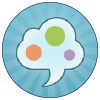BetterU

App of the month
Self-help for Anxiety Management
by University of the West of England
 |
Ask the docDr. Davis Smith is an internist practicing in Connecticut and at Trinity College in Hartford. He specializes in the care of adolescents and GLBTQ patients. |
|---|
“When can drinking too much water be dangerous?”
—Amy J., SUNY Empire State College, New York
Drinking too much water carries the risk of hyponatremia. This condition occurs when the amount of sodium in your blood is much lower than normal, causing the cells in your body to swell. Hyponatremia can be fatal if the cellular swelling occurs in your brain.
A student’s story
Years ago I saw a student who complained of lightheadedness, dizziness, fatigue, and headaches. She told me that she was sleeping well, eating a balanced diet, exercising, and drinking plenty of water. When I asked how much water, she said she carried a liter water bottle and was filling it at least five times a day.
I suggested that maybe she should try backing down to 1–2 liters a day. When she did, her symptoms improved greatly. This suggests that she could have been hyponatremic.
How much water should I drink every day?
The right amount of water is the amount that your thirst dictates. My suggestion: Drink when thirsty. You’ll need to drink more if you’re exercising, have a fever, if it’s hot out, etc.
If you go hours between urinating or your urine is very dark and strong, you probably aren’t drinking enough. The average person going through their day at school probably needs to drink a liter or two a day.
Inadequate hydration can contribute to, or aggravate, some illnesses and conditions. For example, the Mayo Clinic recommends drinking plenty of water to help ease urinary tract infections and (of course) heatstroke. And certainly water is better for us than soda.
What about the “EIGHT glasses a day” rule?
If you’re looking to kill a few hours, try searching online for “eight glasses of water a day.” This is a health advice meme that has been widely circulated for a number of years and yet has essentially no good evidence to support it.
The “rule” reflects the marketing goals of the bottled water industry, not scientific findings. Eight glasses a day “is not only nonsense, but is thoroughly debunked nonsense,” according to an editorial in the prestigious journal BMJ (2011).
The water advice topic is actually a great leaping-off point for a discussion about health advice in general. Is it just me or is the world full of people wanting to tell us what to do? OK, I’m guilty as charged, but we do mean well. The question is: How are you supposed to navigate all this guidance? To start, I’d recommend responding by saying: “That’s interesting. I’d like to see the evidence for that.”
So, can drinking too much water be dangerous? Yes, and so can following well-meaning health advice passed from person to person without investigating the evidence basis. Life is complicated. Isn’t it wonderful?
 |
Ask the trainerFrankie Romeo is a certified personal trainer, small group training coach, and graduate student at Lipscomb University in Nashville, Tennessee. |
|---|
“Which is better: a personal trainer or a workout app?”
—Melissa W., California State University, Stanislaus
The fitness industry is evolving. There are now tons of fitness applications and tracking technologies available to help us get active. Is using apps better than paying for a personal trainer? That depends on your needs, goals, and resources.
Check out these three honest pros (+) and cons (-) about each. How you weigh these factors is up to you. If spontaneous workouts are your thing, or the cost of a personal trainer is prohibitive, you may favor an app. If you want customized guidance relating to an injury or goal, or the accountability of an appointment, consider working with a personal trainer.
Apps and trackers
Pros
- Affordable Many apps are free. Trackers are a one-time purchase (ideally).
- Instant 24/7 access You can work out when you want and where you want.
- Detailed feedback Software can compute and inventory your workout in seconds.
Cons
- Generic workouts App exercise programs usually aren’t for everyone.
- Self-evaluation It’s difficult to accomplish proper technique when relying on an image as your guide.
- Ineffective accountability Some people aren’t motivated by workout reminders and notifications, especially once
the novelty has worn off.
Personal trainers
Pros
- Custom workouts Trainers consider many variables when building an exercise program for you.
- Knowledge and expertise Many trainers have the educational background to address specific questions and needs.
- Personal Software simply can’t understand you like another human can.
Cons
- Cost This service typically ranges from $20 to $100 per hour.
- Limited availability Expect to meet only during scheduled sessions.
- Varying credibility Not all trainers have the same level of competency in health and fitness services.
Whether you decide to use an app or invest in a personal trainer, it’s ultimately up to you to accomplish your fitness goals. Which will you choose to get you motivated?
 |
Ask the nutritionistKaren Moses is the director of wellness and health promotion at Arizona State University in Phoenix. |
|---|
“I skip meals sometimes because my schedule is so busy. Is that bad for my body?”
—Jenna S., Elgin Community College, Illinois
As long as you usually fuel your body with healthy choices, a few skipped meals here and there is not likely to cause serious health problems or nutrient deficiencies in the long run.
However, you might experience some negative effects of skipping meals in the short term. A depleted supply of glucose available to your brain and nervous system can result in:
- Impaired focus and concentration
- Reduced energy levels
- Change in mood
- Feeling foggy, sluggish, or “hangry” (hungry + angry)
- Overeating later in the day
What does the research say?
A regular pattern of skipping breakfast and lunch, and eating just one big meal a day, results in an increase in diabetes risk indicators, according to a 2007 study published in the journal Metabolism.
On the flip side, a different study suggested that intermittent, planned fasting on a specific schedule may reduce the risk of diabetes, according to the International Journal of Obesity (2011).
What should we make of this? My best advice is to make time to eat healthy meals regularly. If you expect to be busy, plan in advance.
How to realistically plan ahead
- Stock up on easy-to-carry items Your options include sliced whole-grain bread and deli meat for sandwiches, cheese and crackers, fresh fruit slices, trail mix, and yogurt. Bring these to class on your long days. Eating a healthy snack could improve your concentration and mood.
- Keep a supply of healthy frozen dinners This is for when you’re at home working on a project and don’t have time to prepare a balanced meal.
- Prep meals ahead of time For example, pasta with steamed vegetables and Parmesan cheese, or stir-fried rice with vegetables and chicken. These meals can last a few days.
If you’re having trouble figuring out ways to fit healthy eating into your busy life, you might benefit from meeting with a dietitian. Check with your school’s wellness center to find help and advice on how to improve your eating style for optimal well-being.

Mind your mind
Avoiding the trap of your assumptions
By Dr. Holly Rogers
College is meant to be a time in our lives for hashing out ideas and setting the world to rights. But that doesn’t always feel comfortable or constructive, especially when we are arguing about trigger warnings and free speech, cultural appropriation versus cultural appreciation, and other issues relating to race, gender, equality, and civil rights.
Healthy debate turns into stalemate when we make assumptions about people who hold different opinions. (She must be stupid to believe that. He obviously doesn’t care about anyone but himself. If she believes that, she must also believe this.)
How to be part of the debate without closing your mind or losing your cool
Be part of the debate without closing your mind, losing your cool, or blowing your chance to bring about positive change.
These tips for using mindful awareness will help you listen, be heard, and communicate more effectively:
- Notice the feeling of anger or stubbornness that comes up when someone disagrees with you. See it for what it is (a normal, temporary mood state) and what it isn’t (proof that you are right and others are wrong or “bad”).
- Take a deep breath and try to listen with an open mind. Recognize that people who have had different experiences will have different perspectives. Be curious, instead of judgmental, when you hear an idea expressed that you don’t share.
- Others will hear you more clearly if they do not feel attacked or criticized. Try starting your sentences with, “I hear what you are saying. This is how I tend to see it…” Acknowledge common ground: “I agree with you about [this part of it]”; “I love that we both care about this so much.”
- Stay grounded in the present moment. If you feel your emotions starting to get away from you, turn your attention to your physical sensations. To calm yourself, notice what your hands are touching, feel your feet pressing into the floor, and feel your breath moving in and out of your body.
- Be willing to take a break and return to the discussion later.
+ Build lifelong skills with Koru Mindfulness
Dr. Holly Rogers co-developed the Koru Mindfulness program for college students (currently available on more than 60 campuses in the US). Trials have shown that the Koru program is effective in helping students feel less stressed, better rested, more compassionate, and more mindful. Dr. Rogers is a psychiatrist at Duke University and co-author of Mindfulness for the Next Generation: Helping Emerging Adults Manage Stress and Lead Healthier Lives (Oxford University Press, 2012).

Contributor spotlight
Nghia Dinh, is a second-year undergraduate at the University of Massachusetts, Boston, majoring in philosophy.
For this issue, Nghia reviewed Condom Finder, an app that helps you find free condom distributors in your area, using GPS or your zip code. It also provides live statistics on HIV infections in the US.
Why did you join the SH101 Advisory Board?
“I joined the SAB with the goal of contributing to the wellness of the college students like myself. I understand that your wellness might not be the easiest thing to manage, since as students we are bombarded with responsibilities, but I hope that my contributions are helping others.”
Best wellness tips? “Have three full meals with lots of veggies every day, listen to music regularly, go to the cinema often, and most importantly: Do it all with friends.”
Student reporter internship
+ Info & how to apply
Student advisory board
Selected students from our diverse community of readers help shape SH101 content.
+ 2015 – 16 Student Advisory Board





